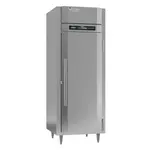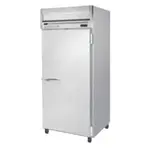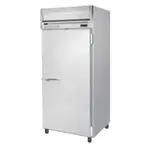
Pizza is one of the most popular dishes across the globe and is cherished by all age groups. Offering this versatile dish allows you to attract new customers and diversify your existing menu. But, how can you ensure your establishment prepares quality pies loved by your patrons? By using the best cheese for pizza. Cheese is an integral part of pizza recipes around the world, and the history of its usage goes back to the very first pies prepared in Naples.
With an understanding of what cheese to use for pizza, your staff can prepare time-tested favorites as well as your establishment’s unique creations to make sure your guests are satisfied with your offerings. Using cheese for pizza requires prior knowledge of the types, their textures, melting points, how well they brown, and their stretchability. We discuss the various types of cheese and combinations you can use to prepare the most cheesy and decadent delights for your customers!
What Cheese to Use for Pizza? Important Considerations
It’s important to have sufficient information on what kind of cheese for pizza would make the end product taste better. There are dozens of different varieties of cheese available in the market, however, not all of them are usable on a pizza due to a variety of factors. Narrowing down the selection criteria when you’re looking to choose the best cheese for pizza making is imperative. Below, we mention important factors that affect the usability of a cheese variety for the preparation of pizza:
- Moisture: Cheeses with high moisture content melt easily, however, these cheese types do not brown as well as those that have a lower moisture content. If you’re wondering which cheese is good for pizza, the varieties with low moisture content are often the better choice.
- Fat: The fat from milk is what makes the cheese dense and pliable when it melts. It also aids the cheese in stretching, giving certain varieties of cheeses a stringy consistency when pulled after being melted.
- Browning & Maillard Reaction: The Maillard reaction refers to a chemical process that occurs between reduced sugars and the amino acids from proteins in food that occur when it is seared, roasted, or broiled. The reaction produces complex textures and flavors in food. If you’re looking for the best cheese for pizza, it has to brown well and should not get burnt in the high temperatures of a pizza oven. The golden brown texture of cheese gives rise to a set of delicious taste notes in a pizza.
- Melting: When you’re considering different cheeses to understand what is the best cheese for pizza, melting is one of the core factors that determine usability. Cheeses that can melt evenly and cover the surface of the pie are among the ideal choices.
- Stretchiness: Alongside the texture of stretchy cheese, this attribute also adds to the aesthetics of the pizza. Stretchiness is an important component of cheese and is closely linked with the melting point and the fat content in it. If you’re still confused about which cheese is best for pizza, varieties that have good stretchability are certainly some of the best options available.
A combination of the above attributes is needed when selecting the best cheese for pizza preparation at your establishment. Weigh your options based on these traits of cheeses, and you’re sure to find a cheese type that suits your establishment’s pizza varieties.
What Is the Best Cheese for Pizza?
Here are some of the best-suited cheese varieties when you’re preparing pizzas at your establishment. They can either be used as singular topping options or in combination with other cheeses to make your offerings extra desirable:
- Mozzarella
Mozzarella is among the foremost options of the best cheeses for pizza. This cheese originates in Italy and was traditionally made only from buffalo milk. However, modern varieties of mozzarella are also made from cow’s milk. Mozzarella offers a mild taste profile with minimal processing. It’s creamy, browns well, and has great stretchability when you choose the low-moisture variety. The high moisture variety on the other hand tends to puddle when heated and has mild browning capacity. High-moisture mozzarella also needs to be used within a day of preparation, unlike its aged & low-moisture counterpart. Ensure you have quality refrigerators from trusted manufacturers when storing high-moisture mozzarella. Atosa reach-in refrigerators can be a great choice!
- Parmigiano-Reggiano
One of the premium cheeses available on the market, Parmigiano-Reggiano is one of the best cheeses for pizza. It contains nutty taste notes, along with a rich & aged aroma that brings a buttery essence. It is aged for periods between a year and 3 years. Made from cow’s milk in the northern regions of Italy, Parmigiano-Reggiano is expensive, albeit one among the finest options when you’re deciding on what is the best cheese for pizza. It can be grated as a garnish or melted into the pizza depending on the type of pie you’re looking to bake.
- Cheddar
Though cheddar cheese is not the first option that comes to mind, it makes for a great ingredient to blend with other cheeses. Cheddar’s orange tint can add rich color to the pizza, and its sharp yet salty tones pair extremely well with the milder mozzarella. It has medium browning ability and low stretchiness and is a perfect complement to cheeses that are high on those factors.
- Provolone
Provolone is one of the most commonly used cheeses when preparing pizzas. It has a consistency that’s neither too hard nor too soft. The flavor profile is diverse and depends on how aged the cheese is. While cheeses that have been aged for short periods are creamier, the aged options are rather dry & sharp to taste. Provolone goes well with multiple flavors and other cheeses and is a great choice when you seek the best cheese for pizza.
- Gruyere
This native Swiss cheese has great stretchability and melts evenly throughout the pie. It doesn’t blister that easily and has a medium browning quality. Gruyere cheese comes with a sweet and earthy flavor that blends well with several toppings, sauces, and even other cheeses. Made from cow’s milk, Gruyere can be what you’re looking for when you’re thinking about which cheese is good for pizza made at your restaurant.
- Goat Cheese
Creamy and sweet, goat cheese is a great addition to pizzas. It pairs perfectly with herbs and brings about a rich flavor. Goat cheeses that haven't aged too much are higher in moisture content and full of texture. The aged varieties are drier and flakier. The advantage of goat cheese is its preservability - allowing you to store them in a rind.
- Gorgonzola
A rich cheese variety from northern Italy with its characteristic blue marbling, Gorgonzola, though rare, is a great option when you’re looking to prepare pizzas with flatbread bases. The taste is intense & sharp and can melt over evenly throughout the pizza base. Gorgonzola is made of cow’s milk and has a healthy amount of milk fat, allowing you to use it uniformly.
With this understanding of cheeses, we hope that you can now better understand what cheese to use for pizza at your establishment. In case you’re planning on preparing some pies beforehand, and are confused about how long cheese pizza is good for in the fridge - the duration is often between two to three days, following which the base will dry out and lose texture. Don’t forget to choose reliable equipment such as deck-type pizza ovens and commercial walk-in refrigerators before you begin offering these classics to your patrons!











